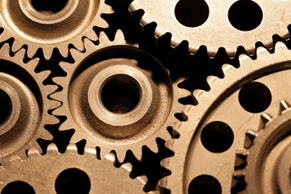Capital allowances - optimum tax efficiency
Tax relief for buying equipment used in a business is given as capital allowances. Directors or their company can claim the capital allowances depending on who buys and owns the equipment. But which is the most tax efficient option?

Capital allowances basics
A tax deduction for the cost of equipment used in a business isn’t calculated in the same way as day-to-day expenses. Because equipment tends to last for more than a year the tax deduction, capital allowance (CA), is spread over a number of years.
For some purchases CAs aren’t spread but given in full for the financial period in which the purchase is made, i.e. like day-to-day expenses. However, this article focuses on tax efficiency ignoring the timing issue. Specifically, whether it’s more tax efficient for the individual or the company to purchase equipment and claim the CAs.
Equipment used by business in general
The CAs rules for equipment are complex but broadly apply in the same way to purchases made by a director who uses it to do their job or the company.
A director isn’t entitled to CAs for equipment that’s not used directly for doing their job. For example, if a director bought an item of equipment that’s only used by other employees in the company’s business, the director can’t legitimately claim CAs for its cost.
In the circumstances described above, the company should purchase the equipment so it can claim the CAs. If it can’t afford to, but the director can, they should lend or give the money to the company to buy the equipment.
Equipment used by director
Where equipment is used by a director in the course of doing their job, there are two ways to obtain CAs. Assuming the company has the funds to buy the equipment:
- it could buy and own the equipment itself and let the director use it; or
- the director can buy and own it using money supplied by the company.
Generally, the CAs available to a company and a director will be the same. However, be aware that there are exclusions for some types of equipment, e.g. cars and vans. A director isn’t entitled to CAs for these.
Tax efficiency ratings
Assuming that the company funds the purchase of equipment, the tax advantage for a company purchase compared to one made by the director varies considerably depending on how the company provides the funds to the director. It could pay a dividend (if they are a shareholder), extra salary or make a gift of the equipment (which would count as a taxable benefit in kind). We’ve crunched the numbers to test the tax efficiency of each of these methods.
Our calculations show that as a rule it’s always more tax efficient for a company to purchase and own the equipment. For example, on a purchase of £1,000 the saving could be up to £373. The tax efficiency is greater if the company can reclaim the VAT paid (if any) on the purchase.
Related Topics
-
Deadline to pay Class 1B NI
-
Do you need to pay tax on loyalty points and cashback?
You’ve been making business purchases on your personal credit card and reaping the rewards in the form of airmiles and cashback. What, if anything, do you need to do to keep on the right side of HMRC?
-
Welsh government plans to tweak relief for buyers
The draft Welsh Budget 2026/27 confirmed there would be no changes in the rates of land transaction tax. However, it did reveal some related changes are being planned. What’s the full story?